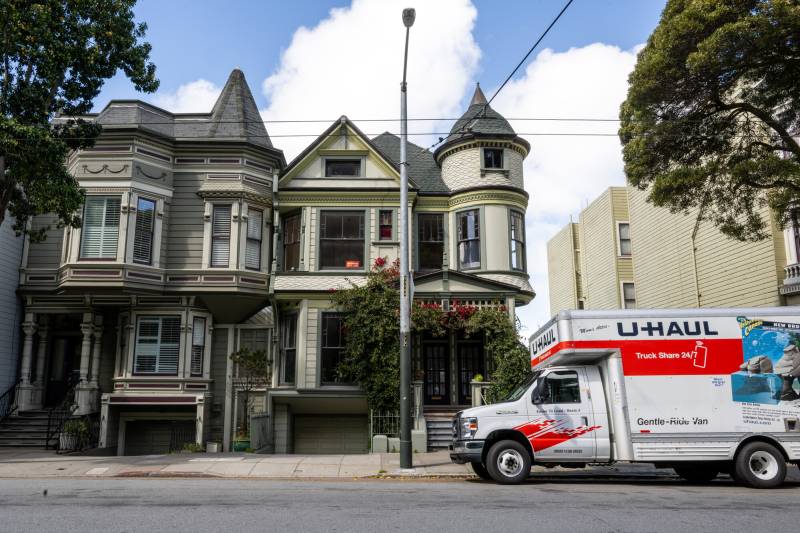Redfin’s report shows that last year, a recent college graduate in the San Jose metro area, which includes San Jose, Sunnyvale and Santa Clara, would have to spend nearly 31% of their income on rent for a two-bedroom apartment they might share with a roommate. For a studio or one-bedroom apartment, they might spend almost half of their income on rent.
Because the rental market has cooled, that same person today might only spend about 28% of their income for a shared two-bedroom apartment and would no longer be considered “rent-burdened” — or spending more than a third of their income on housing.
The findings are slightly different in the San Francisco metropolitan area, which includes San Francisco, Oakland and Berkeley: A recent graduate, who might have paid just over 31% of their income on a two-bedroom apartment last year, would now spend about 27%. For a one-bedroom apartment or studio, that graduate last year would have spent more than half their income on housing. Today, they might spend just over 43%.
The report uses an estimated median salary of nearly $109,000 in the San Jose metro area and just over $84,000 for the San Francisco metro. Those salary figures are somewhat higher than the national average, Redfin chief economist Daryl Fairweather said, because the Bay Area leads the country in salaries for recent college graduates.
“If you are graduating with a degree that doesn’t bring you a high-tech income, then it will be even more difficult for you to be able to afford rent,” she said.
UC Berkeley Labor Center organizer Brad Hirn said because rent prices increased at record rates before and during the pandemic, softening rents should not be viewed as a move toward affordability. Nationwide, rents increased nearly 21% over the past five years, according to a recent report from Harvard’s Joint Center for Housing Studies. The same report found that rents increased only 0.2% nationwide last year, a much more modest increase than the 15% increase in early 2022.
“They start to argue that the market has cooled, and it’s like okay, you set it on fire and then decided to drop a few drops of water on it,” Hirn said. “It’s just kind of detached from reality.”


